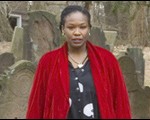Dupuy, McAlister, Ulysse Discuss Haiti
Following the catastrophic earthquake that struck Haiti on Jan. 12, three Wesleyan faculty, Alex Dupuy, Elizabeth McAlister, and Gina Ulysse have appeared in numerous publications and on radio programs to provide context for thinking about the disaster.

Alex Dupuy, the Class of 1958 Distinguished Professor of Sociology, spoke to the Canadian Broadcasting Corp and wrote an essay titled “Beyond the Earthquake: A Wake-Up Call for Haiti” on the Social Science Research Council (SSRC) forum, saying, “There is no doubt that the dominant economic and political classes of Haiti bear great responsibility for the abysmal conditions in the country that exacerbated the impact of the earthquake (or of hurricanes or tropical storms). However, these local actors did not create these conditions alone but did so in close partnership with foreign governments and economic actors with long-standing interests in Haiti, principally those of the advanced countries—the United States, Canada, and France—and their international financial institutions (IFIs)—the World Bank, the International Monetary Fund, the Inter-American Development Bank. Since the 1970s and under various free market mantras, these international actors and institutions sought to and succeeded in transforming Haiti into a supplier of the cheapest labor in this hemisphere for foreign and domestic investors in the export assembly industry; in dismantling all obstacles to free trade; in privatizing public enterprises; and in weakening further the institutions of the state through policies that reinforced Haiti’s dependence on foreign aid organizations—governmental and non-governmental.”
Alex Dupuy is a foremost scholar of recent Haitian political history, and is author of three books, The Prophet and Power: Jean-Bertrand Aristide, the International Community, and Haiti (Rowman & Littlefield Publishers, Inc., 2006); Haiti In The New World Order: The Limits Of The Democratic Revolution (Westview Press, 1996); and Haiti in the World Economy: Class, Race, and Underdevelopment Since 1700 (Westview Press, 1989).

Elizabeth McAlister, associate professor of religion, associate professor of African American studies, associate professor of American studies, wrote an essay titled “Haiti and the Unseen World,” for the SSRC forum, saying, “To approach such events from the vantage point of religious studies is to attend to how groups engage with powers in an unseen cosmic realm that they themselves have constructed. Now I find myself thinking about how crucial it is to engage in frank analysis about rebuilding Haiti in terms of the unseen world of hidden, covert, and sometimes illegal political and economic deals between both Haitians and Americans (and others) that have been instrumental in shaping the overlapping crises that Haitians confront. So far, many social scientists and policy commentators have written about rebuilding as if other countries, international organizations, and the Haitian government itself relate to the Haitian nation in public, official, legal, and traceable ways, when this is often simply not the case.”
Contributing to CNN.com, McAlister compares the reactions of Christians, Vodouists, and social scientists, respectively, to the recent tragedy. McAlister wrote a reaction to Pat Robertson’s statements on the quake for Forbes, and was interviewed by The New York Times. Additional materials can be found here.
McAlister is the author of Rara! Vodou, Power, and Performance in Haiti and its Diaspora (University of California Press, 2002) and produced the album Rhythms of Rapture: Sacred Musics of Haitian Vodou (Smithsonian Folkways, 1995).

Gina Ulysse, associate professor of African American studies, associate professor of anthropology, associate professor feminist, gender and sexuality studies wrote an opinion piece for NPR and appeared on an extended segment of Public Radio’s “Here On Earth” show focusing on “The Way We See Haiti.” She has also has written for The Huffington Post on the importance of public debates on the future of Haiti that include oppositional voices. Ulysse advocates partnership with local grassroots organizations to ensure expedient delivery of relief. Her articles, titled “Haiti Will Never Be the Same,” and “Haiti’s Future: A Requiem for the Dying” are posted online.
In the Post, she says, “the earthquake has indiscriminately shifted some of the class boundaries in Haiti, forcing everyone out in the streets due to fear of frequent aftershocks. This disaster with all of its horror and tragedies actually represents an opportunity when the time arrives to rebuild a different Haiti — one with a government of politicians with national agendas, not self-interest, one that recognizes its duty to its citizens. Haiti could be a country with industries and labor relations that cease to exploit its workers and stops reinforcing the extreme gap between the rich and the poor.”
Ulysse performed her original spoken word piece, “Because When God Is Too Busy: Haiti, Me and The World “ at Wesleyan Feb. 4, which explored the recent earthquake through themes of childhood, migration, and neo-colonialism, in a powerful performance of song and spoken word.
Gina Ulysse is author of Downtown Ladies: Informal Commercial Importers, a Haitian Anthropologist and Self-Making in Jamaica (University of Chicago Press, 2008) and “Papa, Patriarchy and Power: Snapshots of a Good Haitian Girl, Feminism & Dyasporic Dreams,” published in the Journal of Haitian Studies 12.1 (2006): 24-47.
More information is online at http://www.ginaathenaulysse.com/html%20pages/new%20perspectives%202010.html
(Additional information provided by the SSRC)

